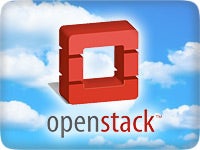Red Hat is accelerating its involvement with the open source OpenStack cloud platform project with a new community distribution of OpenStack.
Red Hat OpenStack RDO is being officially launched today by the Linux leader as a way to enable easier adoption of OpenStack. Red Hat is also in the process of building a commercially supported, subscription-based enterprise release of OpenStack that is set to officially debut by the summer.
“While we work on the run-up to build our subscription offering, we want to have a community offering of OpenStack that tracks really closely what’s happening upstream and gets that technology into developers’ and end users’ hands really quickly,” Brian Stevens, CTO of Red Hat, told ServerWatch.
“We’re packaging the upstream on a rapidcadence with packaging for Red Hat based Linux distributions,” Stevens continued. “Whether that is RHEL (Red Hat Enteprise Linux), Oracle Linux or CentOS, it doesn’t matter.”
Stevens emphasized that the OpenStack RDO distribution is not a Red Hat flavor of OpenStack; rather, it’s intended to be a “vanilla” offering of the upstream project.  The expectation is to upgrade RDO with daily or weekly updates that roll in the latest open source bits.
The expectation is to upgrade RDO with daily or weekly updates that roll in the latest open source bits.
Red Hat was not an early adopter of OpenStack and did not influence its early development. Ubuntu Linux was initially the core reference implementation for OpenStack, and the OpenStack release cadence is timed against major Ubuntu release.
“When we do show up to OpenStack, our first effort in 2011 was all about packaging OpenStack for Fedora Linux,” Stevens said. “At the end of the day it’s just raw code in a git repository and then people pull it out and package it.”
Stevens noted that Red Hat’s developers also did some work upstream to insure that OpenStack can work well with non-Ubuntu distributions.
“There are no distribution-specific things anymore in upstream OpenStack,” Stevens said.
Fedora
Red Hat has been packaging OpenStack for its community Fedora Linux distribution. The new RDO distribution is an extension of that effort for a broader base of Red Hat Linux distributions.
“We were doing the Fedora piece and the problem was that it wasn’t addressing the need in the free market that just wanted a free version OpenStack that could run on Enterprise Linux,” Stevens said. “So the RDO answer was the ‘ah hah’ moment that we had, and we realized we could do something in addition to the subscription product and what’s in Fedora.”
PackStack
As part of the RDO distribution, Red Hat is also launching a new installation tool for OpenStack called PackStack. Other OpenStack distributions, including the SUSE Cloud, have opted to use the Dell Crowbar installation tool. Steven noted that Red Hat did look at Crowbar but decided that it wanted to develop a purpose-built OpenStack installer.
RDO will also include a number of other open source tools that will be useful in the operation and orchestration of a cloud deployment. Stevens noted that Red Hat is working with OpenStack services vendor Mirantis as well, which has its own FUEL library of open source projects that are delivered in support of OpenStack deployments.
RDO Development
RDO is directly downstream from the mainline of OpenStack development. Stevens emphasized that Red Hat has an upstream-first policy toward development, meaning all core development work is done in the main project.
“Our developers will continue to work in the upstream OpenStack, and “whenever we find we need to make changes to make RDO work, we get that work done upstream first,” Stevens said. “RDO won’t change in any way our active involvement in the upstream OpenStack development.”
Red Hat developers will first check code into the main upstream development and then do a package build that will land downstream in the RDO release.
Enterprise Release
While RDO is being released now, Red Hat continues to build out its Enterprise release of OpenStack. The fast moving nature of OpenStack means that there will likely be a faster update model even for Enterprise customers. Stevens noted that Red Hat is planning a Hybrid mode for Enterprise support updates and backports.
The plan is for Red Hat to release an updated Enterprise-supported version of a major OpenStack release three months after it is released upstream. The premise is that this period of time will be used to do additional validation and partner certifications.
Red Hat will also be doing backporting of code for customers that want to stay locked down on a given release. So if a Red Hat customer locks down on the Grizzly release and decides they don’t want to jump to the Havana release when it is out, they can just get Red Hat supported backports on Grizzly.
Red Hat’s first generally available supported OpenStack Enterprise release is scheduled for early summer and will be based on OpenStack Grizzly.
The RDO OpenStack distribution is available for free at: openstack.redhat.com
Sean Michael Kerner is a senior editor at InternetNews.com, the news service of the IT Business Edge Network, the network for technology professionals. Follow him on Twitter @TechJournalist.

